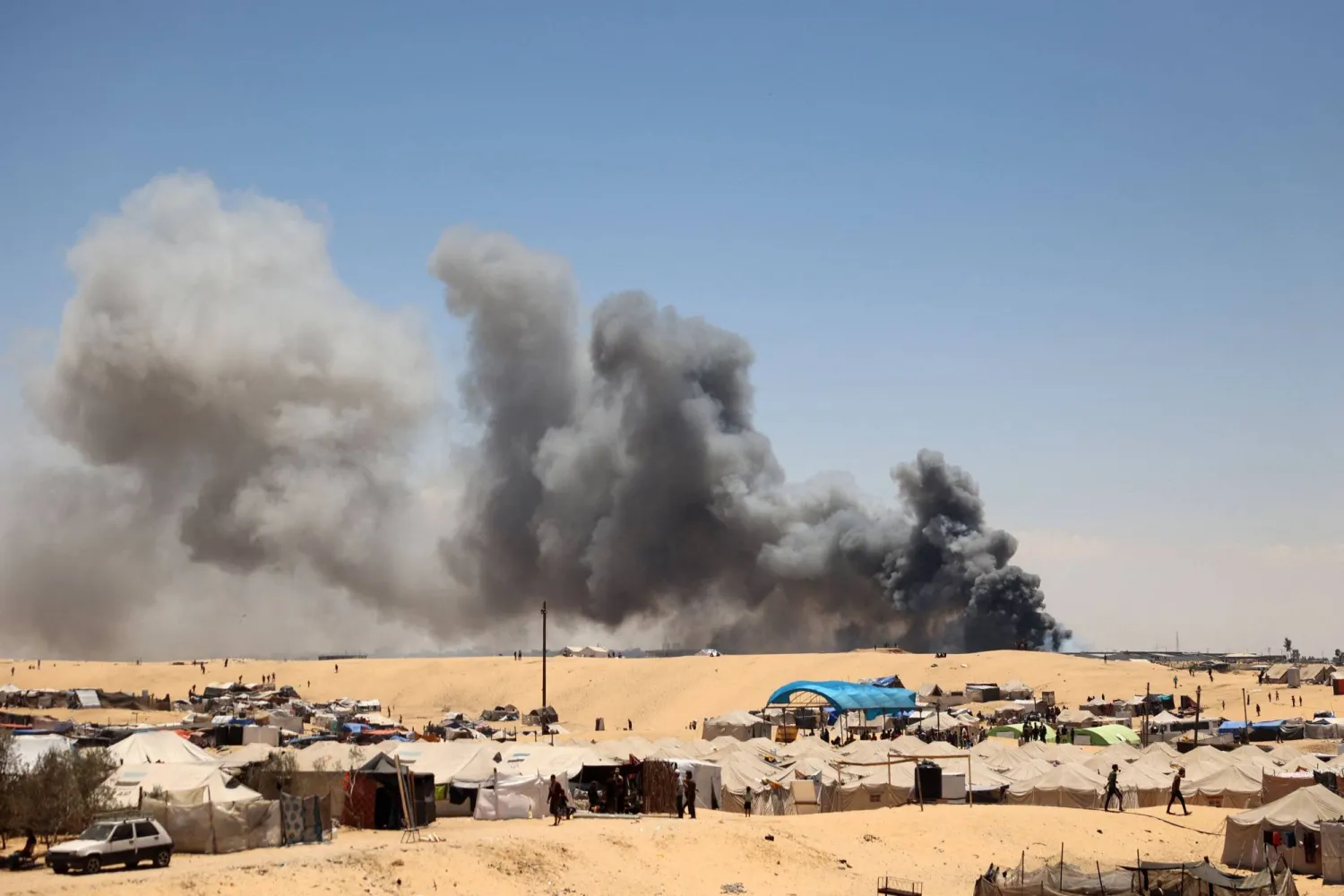The Israeli military confirmed Friday that its forces are operating in central parts of Rafah in its expanding offensive in the southern Gaza city.
Israel launched its ground assault into the city on May 6, triggering an exodus of around 1 million Palestinians out of the city and throwing UN humanitarian operations based in the area into turmoil. Still, US President Joe Biden has said Israel has not crossed the “red lines” of a full-fledged invasion that he has urged them against.
Friday's statement by the Israeli military suggested its forces have been operating in most parts of the city. For its first weeks, the Israeli assault focused on Rafah's eastern districts and in areas close to the border with Egypt.
Israeli troops seized the Rafah crossing into Egypt on the first day of the offensive and have since claimed control over the Philadelphi Corridor, a road running the length of the Gaza-Egypt border on the Gazan side.
Earlier this week, Israeli troops also moved into Rafah's western district of Tel al-Sultan, where heavy clashes with Hamas fighters have been reported by witnesses.
In its statement Friday, the military said its troops in central Rafah had uncovered Hamas rocket launchers and tunnels and dismantled a weapons storage city of the group. It did not specify where in central Rafah the operations were taking place, but previous statements and witness reports have pointed to raids in the Shaboura refugee camp and other sites near the city center.
Israel has said an offensive in Rafah is vital to uprooting Hamas fighters in its military's campaign to destroy the group after its Oct. 7 attack on southern Israel.
Palestinians who fled the city have scattered around southern and central Gaza, most of them living in squalid tent camps. Up to around 300,000 people are believed to remain in the area, some of them still in the central urban parts of the city, a UN official said, speaking on condition of anonymity because he was not authorized to talk to the press.
Shaina Low, a spokesperson for the Norwegian Refugee Council, a humanitarian group that operates in the area, said most have flocked to rural area west of the city near the coast — an area that has seen deadly Israeli strikes and shelling the past week.









